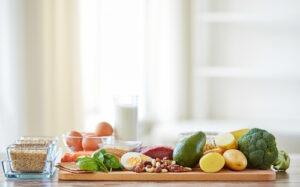Scientists are sounding the alarm: sweeteners are increasingly being used as sugar substitutes, and are positioned as health benefits that protect us from obesity or help us lose weight. But studies show that saccharin, sucralose and aspartame disrupt the composition of the intestinal microflora, cause inflammation, and also increase the virulence of opportunistic bacteria.
What are sweeteners
Sweeteners are substances that taste sweet but do not contain sugar. They were originally used by diabetics. Those suffering from this disease have problems with the absorption of glucose, and sometimes you want to treat yourself to sweets. Consumption of sweeteners solves this problem: they taste the same as simple carbohydrates, but do not raise blood sugar levels.
Today, sweeteners are increasingly consumed by people without diabetes. We eat and drink saccharin, sucralose and aspartame without even knowing it. Sweeteners are included in the composition of dietary products that are positioned as beneficial to health. When we see the inscription “sugar-free” on the label, we are delighted, we buy the product and believe that now we are guaranteed a life of up to 100 years.
But in fact, it turns out that sweeteners are no less of a threat to health than simple carbohydrates. They disrupt the composition of the microflora, increase the risk of obesity and diabetes, cause chronic inflammation in the intestines and increase its permeability.
What the research results say
Studies in animals, humans, and cell cultures have repeatedly confirmed the toxic effects of sweeteners on the body. Studies in mice have demonstrated the poor effects of sweeteners on metabolism, including carbohydrate metabolism. High doses of these substances, which were given to animals, impaired glucose tolerance and caused diabetes mellitus. They also developed dysbacteriosis.
Studies in rats have shown that taking aspartame for as little as 8 weeks increases blood glucose levels by reducing tissue sensitivity to insulin.
Against the background of the use of sweeteners, there is an excessive growth in the intestine of microbes: Enterobacteriaceae and Clostridium leptum. A study in people who took sweeteners for 4 days showed that even in this short period they had a decrease in the diversity of their intestinal microflora. Sometimes they cause diarrhea, abdominal pain, flatulence, and these conditions have to be treated with antibiotics.
Recent studies have shown that sweeteners stimulate the destruction of intestinal cells and increase the permeability of the epithelium. It is associated with an inflammatory response. It is important to restore the disturbed permeability in time so that it does not lead to new diseases. For this purpose, doctors use drugs from the rebamipide group (rebagit), which affect the tight contacts between cells and tighten them together.
How sweeteners affect bacteria
In England, in 2021, a study was conducted in which scientists studied the effect of sweeteners on two types of intestinal microbes: E. coli and E. faecalis – E. coli and fecal enterococcus. It showed that under the influence of these substances the pathogenicity of bacteria increases. They can invade and destroy intestinal epithelial cells, and then enter the bloodstream and affect internal organs.
The amount of sweeteners found in two cans of diet cola enhances biofilm formation. Under them, microbes “hide” from immunity and antibiotics, multiply rapidly and produce toxins.
The authors of the study expressed concern about the increasing prevalence of sweeteners in the world. They are found not only in food, but also in wastewater, surface groundwater, and drinking water systems. They are involved in the transfer of antibiotic resistance genes, which may make it difficult to treat infectious diseases in the future.
Do not abuse sweeteners, as they can be bad for your health. To reduce weight, it is better to use more physiological methods: limiting fatty and sweet foods, consuming more vegetables and fruits, regular exercise.
Read Also: How to lose weight in one week 2022






